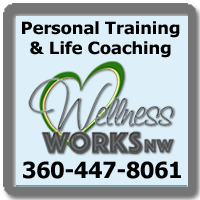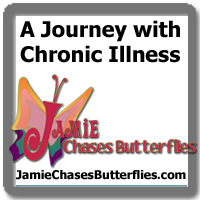I have been working on my mental health most of my life. The first time I saw a counselor was when I was 5-years-old. I wasn’t handling the death of my great-grandmother well, so I began seeing the school counselor. I was never a stranger to the school counselor. Once out of school, I saw therapists off and on throughout the years but I really started digging deep when I was 25-years-old with my pastor. Since then I have been to many therapists. My current therapist specializes in trauma and she began using the term Emotional Neglect Survivor with me about a year ago and suggested the book Running on Empty Overcome Your Childhood Emotional Neglect by Jonice Webb, PhD with Christine Mussello, PsyD.
To take Emotional Neglect Questionnaire go online to:
/https://drjonicewebb.com/cen-questionnaire/
I didn’t take the test until I had finished reading the book, which I have to say I fought with. Not because it was hard to read, because it wasn’t. It was as if all the work I had been doing for the last 26 years was stuffed into 229 pages and there were proper words put into some of what I had been working through. After sitting with my thoughts for a day, I think it was just hard to know this. I am not surprised that I got 16 out of 22 on the questionnaire.
The Ordinary Healthy Parent in Action:
-
- Parent feels an emotional connection to the child.
- Parent pays attention to the child and sees him as a unique and separate person, rather than an extension of the parent, a possession or a burden.
- Using the parent/child emotional connections and paying attention, the parent responds competently to the child’s emotional needs.
I had to force myself to pay attention to the reading for the first two chapters. My natural tendency to dissociate was strong as I read. I know I have always been loved but my parents did not have all the tools they needed.
Being an extension or having the feeling of ownership was commonly felt or seen as I grew up in my family. Often I felt I was a burden, an extension and a possession. I did not express my needs because at my father’s house, he thought my mother was taking care of me and at my mother’s house, she was too overwhelmed. I got my first job at 10-years-old and began buying what I could for myself. I also helped with bills, car repairs and insurance before I was even out of high school. I was not asked. I bought expensive gifts for my sisters, who were treated more preferably. I bought gifts for my mother, for my sisters to give to her. I definitely had an extreme sense of responsibility.
When my father left, I was expected to do a lot of what he did: repairs, I could manage, holding the door for my mother, care of my sisters, who were only 3 and 5 years younger than me. I also had to learn to clean and cook at age 9 years. My sisters were taught to overlook me. I was called names and yelled at and never defended, unless I fell apart. All of this has been flooding back as I read this book. Mental health care is not for the weak.
Types of Emotional Neglectful Parents:
-
- The Narcissistic Parent – They see their kids as extensions of themselves and not separate people. The needs of the children are defined by the needs of the parent and when the child expresses their needs they are accused of being selfish or inconsiderate.
- The Authoritarian Parent – Children are expected to obey without explanation or any exception for individual needs, temperament or feelings of individual children.
- The Permissive Parent – Provides no limits, structure or a strong adult presence against which the child can relate against.
- The Bereaved Parent – Divorced or Widowed and desperately trying to cope while grieving.
- The Addicted Parent – Compulsive behaviors that effect time, behavior and resources. While parents are engaged in addictive behaviors they are not actively parenting. They are like 2 people.
- The Depressed Parent – Tends to disappear, they are turned inward, focused themselves and what is wrong with themselves, worried about if they will make it. Children don’t know how to get positive attention. Bad behavior, at least gets some attention.
- The Workaholic Parent – Often driven, successful people that work long hours and are obsessed by their jobs and tend to not pay attention to the needs and feelings of their children.
- The Parent with a Special Needs Family Member – Care-giving parents are always in crisis mode and adults responsibilities are often put on the child even if unintentionally.
- The Achievement/Perfection Focused Parent – Pressures their child to be perfect and achieve what the parent wants, maybe because they expect perfection from themselves or they are living vicariously through their child, or maybe because they were raised the same way and that is what they know.
- The Sociopathic Parent – Feels no guilt or empathy. Other people’s feelings are meaningless because they can’t feel them. If they can control you, they may feel love for you, but if they can’t, they may despise you, be a bully or play the victim.
- Child as Parent – Child must behave as a parent to themselves, siblings and even to parent in extreme cases. This is common in families with hardships like death, divorce, financial, addiction, mental illness or chronic illness.
- The Well-Meaning-but-Neglected-Themselves-Parent – Parents that weren’t raised in homes where emotions were acknowledged or dealt with properly often don’t know how to foster this in their children even though they love their children. They simply recreate their own childhood experiences.
I can’t in good conscience call this article a book review, although I am sharing good information from the book, I am also sharing my honest responses, which believe it or not, are censored. This makes this an honest opinion piece. Because of divorce, I was raised with 3 parents. Because of their idiosyncrasies, my parents, from my perspective, fit 9 of the 12 types of ENPs and in reality if someone were to ask my siblings their feelings, they might come up with a different number that is lessor or greater than mine because we had different parents, depending on the situation and who’s house we were in.
The most important type of parent, and the point that is frequently brought up throughout the book, which I really appreciate is The Well-Meaning-but-Neglected-Themselves-Parent. Fostering good emotions is a very new concept. I had what I needed, not a lot, but I had a roof over my head, enough food and clothes, shoes, I had toys and a bike. Some of my things were nicer than some of my friends, some of my things weren’t but I was satisfied. What I didn’t have and always missed was a connection with my parents and although I was always trying to get them to turn off the TV or listen to me, or do something I wanted to do, or even just let me tell my side of the story before they yelled at my for something I didn’t do, how were they able to do that, when that wasn’t shown to them by my grandparents? How could they model something they never saw because my grandparents never saw it?
In reality I am only 3 generations in The United States of America on both sides of my family. My family are immigrants and pioneers. They are workers. They didn’t have time for emotions. How can I hold that against them? I don’t. But I do have to look at me and fix me so that I can have a conversation with my father and not scream obscenities at him because my PTSD got triggered when he accused me of something my siblings told him I did, that if I did, is none of his business because we are all adults now, but I felt like a powerless child and the only words I could come up with are the ones he uses when he gets angry…which are not even ones I use. What a mess.
Do you see why fostering healthy emotions in ourselves and our children is important? I do!
The Neglected Child, All Grown Up May Feel:
-
- Feelings of Emptiness
- Counter-Dependence or the fear of being dependent on anyone
- Unrealistic Self-Appraisal
- No Compassion for Self, Plenty for Others
- Guilt & Shame – What is wrong with me?
- Self-Directed Anger or Self Blame
- The Fatal Flaw (If People Really Knew Me They Wont Like Me)
- Difficulty Nurturing Self and Others
- Poor Self-Discipline
- Alexithymia or not knowing how you feel or being able to put words to your emotions
As adults we need to work on these in ourselves because we will pass these same traits onto our children. Because we didn’t know is a good excuse, but now we do so we need to start working on being better so our kids will be healthier, more productive and happier.
Suicidal Feelings
In 2007 there were 34,598 suicides, that is 95 per day. There are 1,045 suicide attempts every day.
Some Reasons for Suicide:
-
- Response to a negative event, like public failure or humiliation
- Avoid consequences
- Mental illness
- Any number of other reasons
Emptiness or numbness is worse than pain.
Common Traits of Suicidal People:
-
- Emptiness and numbness
- Suffering in silence
- Questioning the meaning and value of their life (what is the point of living)
- Escape fantasy
From the time I was 16-years-old, until I was about 25-year-old I was tortured by thoughts of suicide. Mostly it was emptiness, wanting the pain to stop, feeling like I had no choices, extreme feelings of fear and anxiety or flashbacks. It got better for a while and then came back after a terrible break up when I was 29 and then when I married Karen G Clemenson it left. I sometimes have fleeting thoughts but I tell Karen or Jamie Holloway about it. We discuss the situation and usually there is a trigger and just finding the trigger stops the feeling for me. Most recently, I hardly have to tell them any more. I can tell them I went through the process as an afterthought. Growth is awesome.
If you or someone you know are struggling with feelings of suicidal thoughts please seek help.
Go to: https://988lifeline.org/ or dial 988 for help today.
So when you realize that you are Running on Empty you have to Fill the Tank…
Factors That Get in the Way of Successful Change:
-
- False Expectations
- Avoidance
- Discomfort – change is scary
It is important to to understand that Feelings Matter and What To Do With Your Feelings:
-
- Understand the purpose and value of emotions
- Identify and name your feelings
- Learn to self-monitor your feelings
- Accept and trust your feelings
- Learn to express your feelings effectively
- Recognize and understand and value emotions in relationships
For every emotion there is a purpose. Emotions are our feedback system.
-
- Fear tells us to escape or preserve ourself.
- Anger pushes us to fight back or protect ourself.
- Love drives us to care for our spouse, children or others.
- Passion drives us to procreate, create and invent.
- Hurt pushes us to correct a situation.
- Sadness tells us we are losing something important.
- Compassion pushes us to help others.
- Disgust tells us to avoid something.
- Curiosity drives us to explore and learn.
In a healthy relationship you are able to say something like: When you don’t respond to my messages or invite me to events, I feel rejected. If the person cares about you, they will probably make an effort to respond better to you. In an unhealthy relationship the person will probably become defensive. I have experienced both. I don’t give my time to the latter group anymore. When I was told I was the only one with the problem, it took me a while to realize they weren’t going to change but eventually, as I learned to value myself, I chose to not choose to be rejected anymore.
I now choose to give my time to people that make time for me, that validate me and support me and show that they see me as an individual. I am seeing more growth in myself and a lot more peace. I also have more to give to my friends and adopted family.
Self-Care
-
- Nurturing yourself:
– putting yourself first
– learning to say no
– asking for help
– discover likes and dislikes
– put higher priority on personal enjoyment
– eating well
– exercise
– rest and relaxation - Improve self-discipline
- Self-soothing:
– bubble bath
– long hot shower
– listening to music
– cook or bake
– spend time with pet
– detail car
– play with kids
– exercise
– go for a walk
– play an instrument
– enjoy essential oils
– call a friend
– cloud watch
– clean
– got to the movies
– look out the window
– meditate
– positive self-talk - Have compassion for yourself
- Allow yourself to be human
- Nurturing yourself:
Self-care is really important and it can be difficult to build a routine but be patient with yourself. Start with one new habit at a time. I have been working for years to create better habits for myself. I fail, forgive myself, and I start over all the time. It part of being human.
I am not a parent yet. I hope to foster or adopt in the future. This is part of what fuels my fervent search for peace in myself. I promised myself I would never become a parent unless I could give my children what I didn’t have, emotional stability, involved parents and peace. Right now we are still working on financial stability which does play a part in emotional stability. I am lucky that I have a partner that wants peace and communication as much as I do.
For people that have children and want to end the cycle there are very helpful techniques listed in the book. There is also a section for professionals and resources. Running on Empty is a very easy to read but hard to digest in one sitting book, meaning you may need to take it in bites. It is painful to read some of the truths in this book if you aren’t ready for them. Change is hard, like I said, but it is worth it. I highly recommend this book to anyone that is trying to find what is missing inside themselves.
Buy your own copy of Running on Empty Overcome Your Childhood Emotional Neglect by Jonice Webb, PhD with Christine Mussello, PsyD on Amazon.
~
Read My Review on GoodReads:
 Running on Empty: Overcome Your Childhood Emotional Neglect by Jonice Webb
Running on Empty: Overcome Your Childhood Emotional Neglect by Jonice Webb
My rating: 4 of 5 stars
This was an important book to read for me. Although I have been working on the things spoken of in this book for about 26 years, many of the principles didn’t have names. Emotional Neglect is a term I only heard in the last year or so with my current therapist, who suggested I read this book. Although I had to force myself to not dissociate while I read the first 2 chapters and I struggled through other parts of the book, I believe that too is important to my growth.
I love that the author states that most of us are Emotional Neglect survivors because no one knew to foster healthy emotions in their children, so while it was my parent’s responsibility to do this, it is easy for me to have compassion for them too, because they couldn’t teach me what they didn’t know. In a world we are quick to lay blame, I think this viewpoint is healthy in helping us take responsibility for our wellness now.
~
Feel free to leave your comments below!
My name is Summer. That is how you can call me. I hope that I am a blessing to you. I am not perfect. I will fall again. But I am forgiven.
For anyone reading this that isn’t a Christian, unapologetically, I am a Christian, but I believe there is room for lots of beliefs and religions in the world. It is not my intent to offend people with different beliefs than I have and I would be open to open-minded conversations with no goals of changing anyone’s mind, but sharing information.
If you are interested in becoming a Christian…Do you know Jesus? Do want the Holy Spirit to fill you and give you understanding and salvation? Ask Him. Want someone to pray with you? Contact me.
If you would like to know Jesus as your friend, but want to make this amazing commitment by yourself please pray something like this:
Thank you Jesus that You are the Son of God, the God that created heaven and earth. Thank you Jesus that You came to earth in the form of a man so that You would be able to empathize with my humanity. Thank You that You did this in order to fulfill the promises You made at the foundation of the world.
I realize that I am a sinner and do things that hurt myself and keep myself away from you. Thank You that You died for my sins so that You could defeat death and bring me into Your life. Please forgive me.
I ask You to be Lord of my life. I ask you to heal my hurts and show me what my new life, empowered by You looks like. Thank You for Your mercy.



 Please wait...
Please wait...

